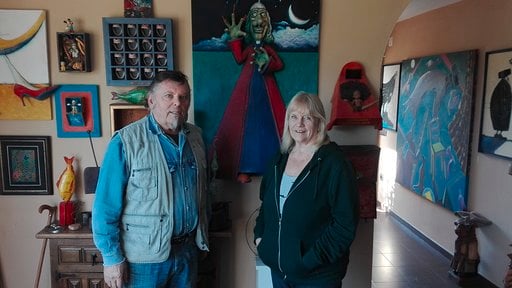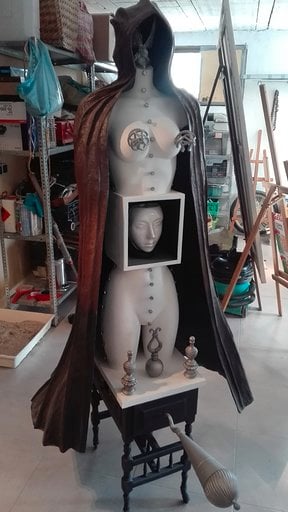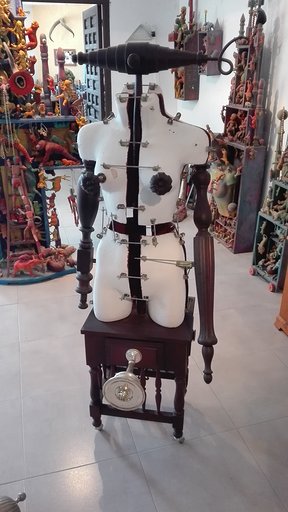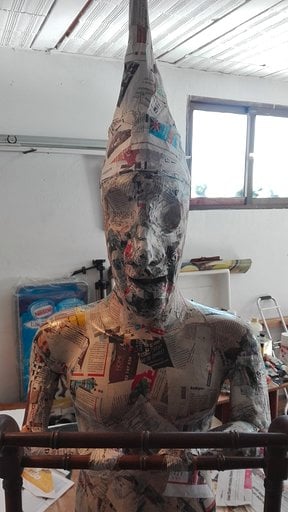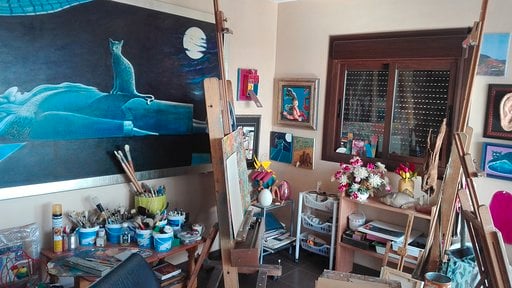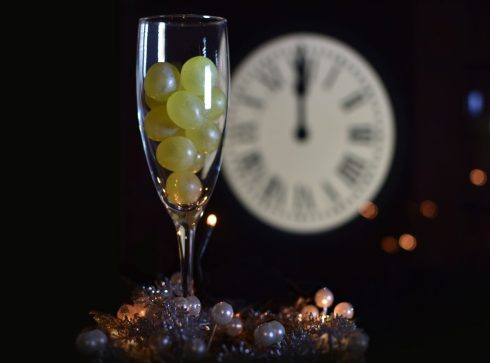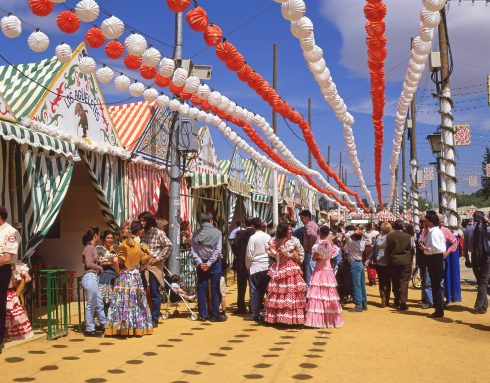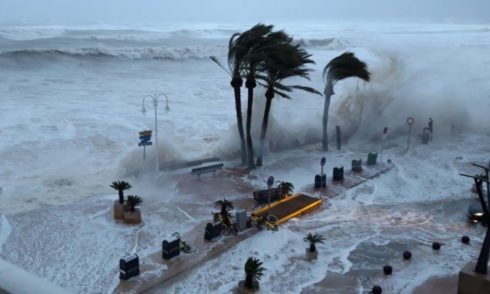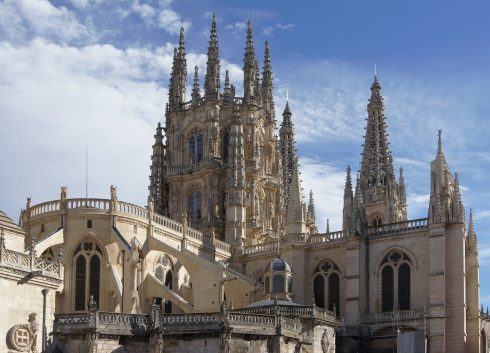HELD up by armed robbers in Britain, shunned by the art world in Belgium, forced to put down his brushes and take up the tools of a trade for half his working life. David Grice once earned five figures for some of his pieces but he also knows what it means to be a struggling artist.
Now that’s all in the past. From their new home in the picture postcard village of Canillas de Aceituno in the hills of Velez Malaga, David, his artist wife Carol and their three cats are starting a fresh canvas.
Now in their 70s, the couple are desperately seeking an outlet to display David’s outstanding collection of avant garde sculptures and paintings and re-establish his name in the ultra competitive world of contemporary art.
The first thing you notice when you walk in the door is walls filled with paintings and bass relief works. Each piece has a backstory, enthusiastically told with such detail you’d think they’d been finished yesterday, although some pieces go back to the 1970s.
David has lived and breathed art since he was a lad. “You might say it’s in my blood,” he says. He was an early pioneer of the recycled art movement, using discarded items to create cutting edge sculptures and inventing the startling Super Surreal Baroque genre.
A contemporary of world-renowned pop artist David Hockney, although nine years his junior, David grew up in the next door town of Saltaire, in the shadow of the now famous Salts Mill which houses one of the world’s largest Hockney collections. A rebel, like Hockney, he even studied graphic design at the same art college in Bradford. But from there, the artists’ paths diverged.
After his parents’ break up, David was forced to give up his studies and went into the building trade with his uncle. He’d hit 40 by the time he could afford to give up his day job to focus full time on his artwork. Opening a gallery in Saltaire, he quickly made a name for himself, buying and selling antiques and artwork, often for price tags with four noughts.
“We started the business from scratch, we found a ruin and did it up, put a car park in, restored the whole thing, it was lovely,” says Carol. “But we had to leave after we had a series of armed break ins. I came face to face with the intruder and was threatened with a hammer; we just had to say enough is enough!”
Deciding to try their luck in Belgium, they set up shop in Antwerp’s diamond district. The Orthodox Jewish neighbourhood inspired David to create a collection of surrealist paintings depicting the extraordinary faces and characters he saw. But the Belgium art world proving to be very insular and difficult to crack. “The locals did not care for foreigners and even more so foreign artists,” says David.
After five years of trying to recover the momentum they’d gained in Britain, in 2010 they moved to Spain, renting a number of apartments before falling in love with Canillas. Since then David has been busy adding to his collection of spectacular sculptures using items of scrap, lovingly transformed into art through his deviant imagination.
With pieces in the past selling for tens of thousands internationally, there is clearly a worldwide market for David’s surreal brand of sculpture, providing they can find an agent to help them promote their pieces to a wider audience.
With luck, it will unlock the door back into the art world and bring some financial stability to their Spanish idyll.
Click here to read more News from The Olive Press.

